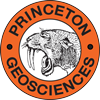
Mercury is one of the most toxic trace elements. Because of the volatility of elemental mercury (Hg0) and the high reactivity of the mercuric ion (Hg2+), it is also one of the most elusive. The global cycle of mercury is largely controlled by oxidation–reduction reactions in the atmosphere and in surface waters that readily convert volatile Hg0 into soluble Hg2+ and vice versa. A small fraction of mercury in natural waters is converted to methylmercury (CH3Hg+) by bacteria in anoxic environments. This compound accumulates in the biota via the food chain, resulting in human exposure through consumption of fish. Our present research focuses on the mechanisms of Hg methylation by anaerobic bacteria and the environmental factors that control it. We have established that mercury uptake by methylating bacteria is an active process that is highly dependent on the characteristics of the thiols that bind Hg2+ in the external medium, with some thiols promoting uptake and methylation and others inhibiting both. Thus the uptake and methylation of mercury by bacteria does not occur passively and accidentally as previously thought; rather it is under tight physiological control, raising the question of its cellular function.



